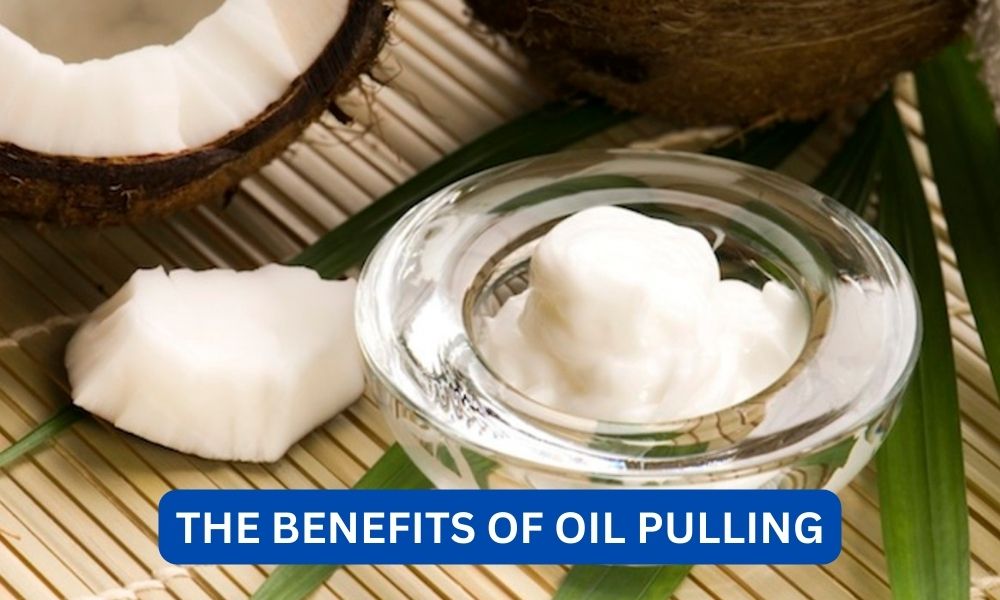Oil pulling is an ancient Ayurvedic practice that involves swishing oil in the mouth for several minutes to improve oral health. This traditional remedy has gained popularity in recent years, with many people claiming its numerous benefits. While there is limited scientific research on oil pulling, many individuals swear by its effectiveness in promoting overall oral health. In this article, we will explore the potential benefits of oil pulling and the evidence behind them.
Contents
What is Oil Pulling?
Oil pulling, also known as “kavala” or “gundusha,” is an Ayurvedic practice that involves swishing oil in the mouth for 15-20 minutes. The most commonly used oils for oil pulling are coconut, sesame, and sunflower oil. This practice is believed to have originated in India over 3,000 years ago and is still widely used in Ayurvedic medicine.
The process of oil pulling is simple. Take a tablespoon of oil and swish it around in your mouth, pulling it through your teeth and around your gums. The oil should be swished gently and not swallowed. After 15-20 minutes, spit out the oil and rinse your mouth with warm water. It is recommended to do this on an empty stomach, preferably in the morning.
Read:What are the benefits of eating pomegranate seedsThe Benefits of Oil Pulling
Oil pulling is believed to have numerous benefits for oral health. While there is limited scientific evidence to support these claims, many individuals have reported positive results from incorporating oil pulling into their daily routine. Here are some of the potential benefits of oil pulling:
1. Reduces Harmful Bacteria in the Mouth
The mouth is home to millions of bacteria, some of which can be harmful and lead to various oral health issues. Oil pulling is believed to reduce the number of harmful bacteria in the mouth, thus promoting better oral health. A study published in the Journal of Traditional and Complementary Medicine found that oil pulling with sesame oil significantly reduced the number of Streptococcus mutans, a bacteria responsible for tooth decay and gum disease.
2. Prevents Bad Breath
Bad breath, also known as halitosis, is a common problem that can be caused by poor oral hygiene, certain foods, or underlying health conditions. Oil pulling is believed to help eliminate bad breath by reducing the number of bacteria in the mouth. A study published in the Journal of Ayurveda and Integrative Medicine found that oil pulling with sesame oil significantly reduced the levels of volatile sulfur compounds, which are responsible for bad breath.
Read:How to take cayenne pepper for health benefits?3. Promotes Healthy Gums
Gum disease, also known as periodontal disease, is a common oral health issue that can lead to tooth loss if left untreated. Oil pulling is believed to promote healthy gums by reducing inflammation and plaque buildup. A study published in the Journal of Indian Society of Periodontology found that oil pulling with coconut oil significantly reduced plaque and improved gum health in individuals with gingivitis.
4. Whitens Teeth
Oil pulling is also believed to have a whitening effect on teeth. The oil acts as a natural cleanser, removing stains and toxins from the teeth. A study published in the Nigerian Medical Journal found that oil pulling with coconut oil significantly reduced plaque and improved tooth color in individuals with stained teeth.
5. Relieves Jaw Tension and Headaches
Oil pulling is not only beneficial for oral health but also for overall well-being. The swishing motion of oil pulling is believed to relax the jaw muscles, which can help relieve tension and headaches. A study published in the Journal of Traditional and Complementary Medicine found that oil pulling with sesame oil significantly reduced the frequency and intensity of headaches in individuals with chronic tension-type headaches.
Read:What are the benefits of drinking coconut water?The Evidence Behind Oil Pulling
While there is limited scientific research on oil pulling, the studies that have been conducted show promising results. However, most of these studies have been small and have not been conducted on a large scale. More research is needed to fully understand the benefits of oil pulling and its effectiveness in promoting oral health.
One of the main limitations of the existing research on oil pulling is the lack of control groups. Most studies have compared oil pulling to no treatment or to other oral hygiene practices, such as mouthwash. This makes it difficult to determine if the benefits reported are solely due to oil pulling or other factors.
Additionally, most studies have been conducted on a short-term basis, ranging from 7-30 days. More long-term studies are needed to understand the potential long-term benefits of oil pulling.
How to Incorporate Oil Pulling into Your Routine
Oil pulling is a simple and inexpensive practice that can easily be incorporated into your daily routine. Here are some tips to help you get started:
- Choose a high-quality oil: It is important to use a high-quality oil for oil pulling. Organic, cold-pressed oils are recommended.
- Start with a small amount of oil: If you are new to oil pulling, start with a small amount of oil, such as one teaspoon, and gradually increase the amount as you get used to the practice.
- Swish gently: The key to oil pulling is to swish gently and not vigorously. This will prevent jaw fatigue and ensure that the oil reaches all areas of the mouth.
- Spit out the oil: After 15-20 minutes, spit out the oil into a trash can. Do not swallow the oil as it contains bacteria and toxins from the mouth.
- Rinse with warm water: After spitting out the oil, rinse your mouth with warm water to remove any remaining oil.
- Brush your teeth: It is recommended to brush your teeth after oil pulling to remove any remaining bacteria and toxins.
Conclusion:
Oil pulling is an ancient Ayurvedic practice that has gained popularity in recent years for its potential benefits in promoting oral health. While there is limited scientific research on oil pulling, many individuals have reported positive results from incorporating it into their daily routine. Oil pulling is a natural and inexpensive way to improve oral health, and it may also have other benefits for overall well-being. However, more research is needed to fully understand its effectiveness and potential long-term benefits. If you are interested in trying oil pulling, be sure to consult with your dentist first and use high-quality oils for the best results.









